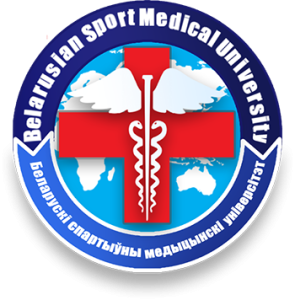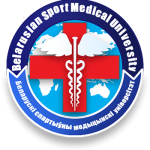Adam Copeland is known to the world as Edge. He is a retired professional wrestler and actor. Adam Copeland as Edge is one half of the greatest tag team in WWE history with Christian. Edge and Christian are a 7 time Tag Team Champion. Adam Copeland has won 11 World Championships as a singles wrestler.
BSMU Representatives Took Part in WHO Training Workshop
The prevalence of mental disorders is up to 25%, which indicates their extreme prevalence. The most frequent ones include anxious disorders, comprising 21% of the population, and depressive disorders, comprising 11% of the population. These data indicate that physicians of any specialty invariably encounter people suffering from mental disorders in their practice, and particularly general practitioners. Despite the high prevalence, primary care physicians often lack the knowledge and skills to treat such patients.
From November 8 to November 12, the WHO Office in Belarus in cooperation with the Ministry of Health of the Republic of Belarus hosted training workshop “Training of general practitioners in the diagnosis and treatment of common mental disorders using the WHO mhGAP guidelines” in order to fill current gaps and train better specialists in future.
The event was attended by tutors from the Departments of General Medical Practice and the Departments of Psychiatry and Medical Psychology from all medical universities of Belarus, as well as specialists from the Russian Scientific Centre for Mental Health and BelMAPO.
Head of the General Medical Practice Department, Candidate of Medical Sciences, Associate Professor Vadim Sushinsky, Assistant Professor, Candidate of Medical Sciences, Anatoly Bliznyuk, Assistant Professor, Candidate of Medical Sciences, Assistant Professor Vladimir Pikirenya attended the training on behalf of Belarusian State Medical University.
The event covered issues related to depression, suicidal behaviour and dementia. During the training, role-playing games were conducted and video counselling situations within the WHO mhGAP approach were analysed.
This is the first of the planned trainings for tutors aimed at improving diagnosis and management of mental disorders and conditions at the primary health care level. Next year, it is planned to continue this work and learn about other aspects of integrating mental health care into primary health care system in Belarus.
The event took place in accordance with the Plan of Cooperation between the Ministry of Health of Belarus and the WHO Regional Office in Europe for 2020-2021 within the framework of the program area component “Mental health counselling and training for teachers on integration of mental health into the primary health care for early identification of patients with depression, dementia, as well as suicide prevention”.
Author: Vladimir Pikirenya, Associate Professor, the Department of Psychiatry and Medical Psychology, BSMU, photos provided by the author
Translation: Tatiana Malkovich
New horizons of pediatric dentistry
Teachers, students, clinical residents, students of the Faculty of Advanced Training and Retraining took part in the International Conference “Current Issues of Pediatric Dentistry”, which became an annual event between the Departments of Pediatric Dentistry at Volgograd State Medical University and Belarusian State Medical University.
The head of the Department of Pediatric Dentistry, Volgograd State Medical University, Doctor of Medical Sciences, Professor Irina Fomenko, Dean of the Dental Faculty, Doctor of Medical Sciences, Associate Professor Dmitry Mikhalchenko, Professor of the Department of Pediatric Dentistry, Volgograd State Medical University, Doctor of Medicine, Professor Elena Maslak, Head of the Department of Pediatric Dentistry, Belarusian State Medical University, Doctor of Medicine, Professor Natalya Shakovets extended their greetings to the participants.
The conference was opened by Olga Romanova, Candidate of Medical Sciences, Associate Professor of the Department of Pediatric Dentistry of Belarusian State Medical University with a report “Dentist’s tactics in traumatic dental injuries with incomplete root formation”. She highlighted in detail the current methods of treating teeth with incomplete root formation in trauma in children. In her report, data on medicines used in dental pulp therapy in children were systematized. The author has demonstrated her own results of the method in clinic.
Yulian Kroman, a postgraduate student of the Department of Pediatric Dentistry, Volgograd State Medical University of the Russian Ministry of Health, presented a report “A differentiated approach to determining the indications and treatment of ankyloglossia in children”. His performance was very well illustrated with a large number of photographs. He detailed the tactics of managing patients with pathology of the lingual frenum.
In the report of Yuri Zenkevich, assistant of BSMU Department of Pediatric Dentistry and Alexander Korsak, Candidate of Medical Sciences Associate Professor of the same department, the results of complex treatment of children with congenital pathology were presented. The authors shared their many years of experience in the application of highly effective treatment methods. The report aroused great interest from Volgograd colleagues in connection with the differences in the interdisciplinary approach to providing comprehensive assistance to children with this pathology.
The conference was completed by the report of the Assistant of the Department of Pediatric Dentistry of Volgograd State Medical University Asiyat Shkhagosheva “Fissure sealing in children from the point of view of evidence-based medicine”. After that, a discussion began among the faculty staff on modern approaches to the method of preventing dental caries and the materials used. A positive aspect of the conference was the participation with reports of pediatric dentists of therapeutic and surgical profiles.
The Volgograd side expressed a desire to organize an exchange of students within the framework of the concluded agreement on cooperation between universities, which will further contribute to the strengthening of ties.
Author: Olga Romanova, Associate Professor of the Department of Pediatric Dentistry, Nadezhda Chernyavskaya, Assistant of the Department of Pediatric Dentistry, Belarusian State Medical University;
Photo from the archive of the department and public sources;
Author: Anastasiya Karnacheva.
Director of Eurasia Consulting LLC Wei Chunlei paid a visit to Belarusian State Medical University
On November, 15 Director of Eurasia Consulting LLC Wei Chunlei, who represents (by authorization letter) the interests of Nanjing Medical University (People’s Republic of China), visited Belarusian State Medical University.
Nanjing Medical University is a partner of Belarusian State Medical University in international cooperation. An agreement on academic and scientific cooperation was signed during the visit of Vice-Rector for International Relations Vasili Roudenok to the city of Nanjing in 2019.
The purpose of Director of Eurasia Consulting LLC Wei Chunlei visit was to discuss issues of academic and scientific inter-university cooperation.
The foreign guest was received by BSMU Rector, Doctor of Medical Sciences, Professor Sergey Rubnikovich. The meeting was also attended by Vice-Rector for International Relations, Doctor of Medical Sciences, Professor Vasili Roudenok.
For reference. Nanjing Medical University was founded in 1934. It is one of the first universities in China which introduced 6-year education in the field of medicine. The university is included in the elite league C9, in the national ranking – in the Top 10 best educational institutions of the country, and in the international ranking it also has a good position.
This institution of higher education offers undergraduate, graduate and doctoral programs, postdoctoral research programs. It consists of an independent school, Kangda College and 16 schools. Most schools are dedicated to the study of medicine, public health, and other areas of health care. More than 1.4 thousand teachers work at the university.
It also actively develops programs of international exchange and cooperation, in which students and teachers go abroad to study and work with research institutions and medical schools in the UK, the United States of America, Australia, Germany, Japan and France.
Nanjing Medical University is a partner organization of the Health Policy and Systems Research Alliance at the World Health Organization.
… Among the issues of mutual interest, the following ones were indicated: holding of joint conferences, lectures and online workshops, academic exchange, as well as the training of Chinese students at Belarusian State Medical University.
An agreement was reached to hold a conference on current issues of medicine early next year, where the teaching staff of both Belarusian State Medical University and Nanjing Medical University will make reports. The parties will be able to exchange experience, establish new contacts, and also contribute to the further intensification of inter-university cooperation.
In addition, Belarusian State Medical University sent an invitation to the President of Nanjing Medical University, Professor Hu Zhibin to take part in the celebrations dedicated to the 100th anniversary of the leading medical institution of higher education in our country.
At the end of the visit, Director of Eurasia Consulting LLC Wei Chunlei thanked BSMU Rector for the hosting. The parties expressed their hope for continued fruitful cooperation.
Author: Anastasia Karnacheva, methodologist of BSMU Department of International Relations;
Photo by Dmitry Zelenkovsky;
Translation: Anastasiya Karnacheva.





